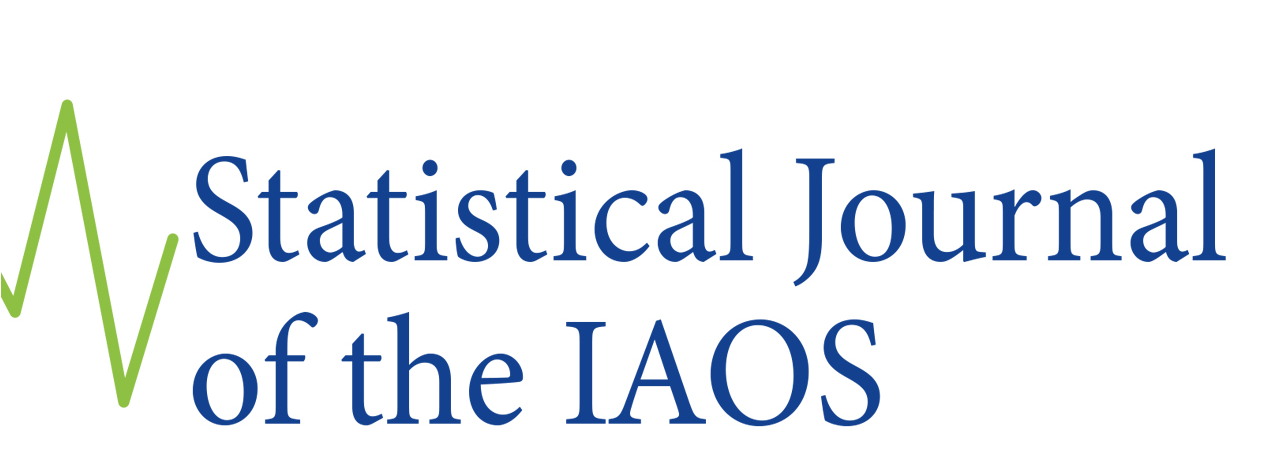
The seventh discussion focuses on Misuse of Statistics. It aims to centre around the need for trustworthy information to guide decision making and enable citizens to understand issues that affect their health and livelihoods.
Misuse of statistics is a phenomenon as old as statistics itself. Regulatory systems like the Fundamental Principles for Official Statistics, statistical laws and rules for ethical behavior of statisticians aim to avoid and - whenever needed - correct forms of misuse of statistics. Times of crisis like we are now in at a world-wide scale, ‘invite’, even more than in normal times, those who have an interest in specific figures to massage, manipulate or even falsify information. The impact of misuse of statistics or false statistics is apparent. All this makes a discussion on Misuse of statistics even more current, and surely justifies the second part of the title : Time to speak out.
Discussion can be held at a theoretic level. However, reality is much harder and ask for very strong leadership and support mechanisms to prevent misuse. Experience shows that the commitment from policy makers is most relevant and cannot,even in developed countries, always be trusted.
Background for the statements for this discussion can be found in the five contributions in this issue of the Journal but also in earlier work that has been done in this field. This topic has also been the theme of two events that took place during the last six months. A webinar hosted by the International Association for Official Statistics (IAOS) on 6 October 2020 as a side meeting to the UN World Data Forum (UN-WDF) (see: https://www.iaos-isi.org/index.php/latestnews/278-misuse-of-statistics-time-to-speak-out) and on 22 February 2021 a side meeting to the UN Statistics Committee (UNSC) brought together many voices on this issue, describing specific cases, their impact but also the way this misuse currently is, can and should be treated. (See https://www.iaos-isi.org/index.php/latestnews/286-united-nations-statistical-commission-2021-side-event)
Contributors are invited to comment the following statements.
Statement 1
An important feature of the current political landscape is erroneous (intentional and non-intentional) interpretation of data and statistics due to a lack of statistical literacy of users of statistics and an insufficient awareness and responsibility of the providers of statistical information to sufficiently inform and when needed correct the users about the characteristics of the statistical information.
Statement 2
New data sources (big data) and methodologies (artificial intelligence, algorithms) and the growth of the number of people and organizations involved in producing and using statistics create the need for an increased awareness of misuse of statistics. The current regulatory systems in use are not known and/or sufficiently communicated to the new societal groups involved in producing and using statistics. The official statistics community has until now, unconsciously neglected the damaging side-effects of these new sources and methodologies on the trustworthiness of the profession.
Statement 3
The regulatory systems based on the Fundamental Principles, statistical laws etc, are no longer sufficient to guard against misuse of statistics by policy and decision makers. A widening of the awareness for the impact of misuse has to be strived for via an active participation of ‘official statistics’ organizations in warning about and publishing situations of misuse.
Statement 4
These developments demand from the UNSC as guardian of ‘official statistics’ an independent and systematic approach for classifying, registering and publishing types of misuse and how to react to them. Such an approach should be based on characteristics of the ‘misused statistics’, the aim of the communication (intentional - non-intentional) as well as on the characteristics of the people and organizations that ‘misuse’. The model can also inform a discussion about what needs to be changed at the level of international/supranational arrangements, whether concerning institutional settings, processes, or legal and ethical frameworks, affecting the production of official statistics.
Statement 5
A movement towards full recognition of the damaging effect of misuse of statistics and its origins and forms needs to be triggered as it was with the movement that led in the nineties of last century to the Fundamental Principles of Official Statistics. Such a movement needs to embrace a new culture of thinking about ethics in statistics and the role statistics play in our society.
WJRadermacher
I can say from my own experience that the ability of international institutions to detect and influence misuse and misconduct in statistics is important, but has its limits.
As a conclusion, it seems necessary to me that we build a second, complementary channel of monitoring this problem, which firstly takes a global perspective and secondly is is rooted in civil society. It is important to create a public advocacy for statistics that does not rely on anecdotal evidence in a few countries. This evidence must at the same time meet our own standards of statistical quality; no easy task and objective. In this respect, I found the recently published Academic Freedom Index to be most appealing.
https://www.gppi.net/media/KinzelbachEtAl_2021_Free_Universities_AFi-20…
A panel discussion of this topic is in preparation for ISI WSC 2021.
mishabelkindas
I watched the webinar with great interest and found it very focused and useful. We need to figure out the role of IOAS in fighting the cases of misuse and misinterpretation of statistics in particular when the data ecosystems are becoming more complicated and the political climate in many countries, developing and developed, is not very "friendly" to statistical outputs. The same is true for media. The IAOS congress in 2022 should talk a lot about this issue.
Fred-HO
From : Fred HO, Former Commissioner for Census and Statistics, Hong Kong, China and currently Adjunct Professor at the University of Hong Kong.
It was a great webinar, on a subject of great importance.
Official statistical Authorities are frequently unfairly accused of fiddling with statistics, on their own or under the pressure of other parties in the Government, by the Mass Media or commentators from other areas.
Often this due to the lack of adequate knowledge on the technical details, or otherwise in the interest of those parties in the interest of their own agenda. The general public is easily misled because they tend to have biased views as they either observe things intuitively with a narrow perspective or they tend to trust hearsays.
Statistical Authorities need to put in a lot of Public Relations efforts persistently and engage in statistical literacy education to gain their own grounds.
Hernan Muñoz
Thanks Steve Mac Feely for your comments. The governance of the FPOs Watch, which I suggested in my intervention, is a multi-stakeholder consortium, like other initiatives such as PARIS21. The responsibility does not necessarily have to rest entirely with the IAOS. But IAOS is probably the organization that can promote this project most effectively. As you said, it is a bold step. But the statistical community has shown courageous members. Also initiatives led by professional associations and civil society can better avoid endless discussions involving international politics.
Independence is a key factor, since this new body would not only promote good statistical practices, but would also report deviations by countries. The representatives of the countries and multilateral organizations have limitations to speak about other countries. Therefore, it is important that they are not exposed, although their strategic support is crucial. Over the years, the statistical community has been able to identify the elements necessary to grant independence to NSOs. Those same principles and rules can be used for this body.
As John, I believe it is time for action and the current times offer a window of opportunity to move forward. It is also urgent. I expressed my concern about the situation of statistical legislations in Latin American countries and the need to promote its modernization as a first step towards the establishment of protective barriers to the independence of NSOs. I referred to the excellent recent work of the IDB on this regard: https://publications.iadb.org/publications/spanish/document/Marcos-lega….
It is still only available in spanish, but In this blog I wrote about it in english: https://cepei.org/en/documents/data-to-face-the-pandemic-statistical-le…
There is a call to action right now in Latin America. There have been several cases of political interference, although not as notorious as the case of Argentina in the past. In my intervention I mentioned the case of Ecuador, which statistical office (INEC) suffered unfortunate situations, and in the last 4 years had 6 different directors. Ecuador is in a electoral period until April 11, and there is a risk that these bad practices will be considered normal by the next governments. The international community should say something, e.g. sending a letter to both candidates for president -and make it public through the media- requesting their commitment, if they are elected, to review the statistical legislation, bring stability to the INEC and independence to the work of its Staff. It would be a good starting point to have concrete advocacy actions.
John Pullinger
I agree with Steve Macfeely that the UNSC side event has given the statistical community a lot more impetus to work out how best to act. The event was very popular. Over 280 people attended, most throughout the whole session, from all regions of the world. At a time when people are suffering from acute webinar fatigue that speaks to the importance of the issues discussed.
Misuse of statistics is an abuse of power. The threats are wide-ranging and have been changing fast in recent years as the data revolution has gathered pace. A good range of safeguards are in place and remain relevant but need further bolstering to be robust to the face of the changes taking place.
Pali Lehohla has called for us to “wake up and smell the coffee”. There is unfinished business. A strengthened data ecosystem that does not tolerate misuse of statistics is needed at the national and global levels if the public good that could be generated is not to be seriously undermined. We should cheer on those who produce statistics that serve the public good and call shame on those who suppress, distort, manipulate and misuse numbers to mislead, cover up and divert attention from what is really going on.
There is an opportunity to give fresh impetus to efforts to implement a system of governance for statistics serving the public good that will serve the citizens of all nations. Now is the time to grasp that opportunity, make real ideas like the Global Data Convention and ensure follow up on the forthcoming World Bank, World Development Report.
steve.macfeely@un.org
Thank you for a very interesting and thought provoking UNSC side event today (22.02.2021). There were so many fascinating angles and perspectives put forward.
I hadn't read Hendricks paper, but I found the idea of an 'attention economy' very interesting - so NSOs/NSSs are competing in both the data and attention markets.
Munoz' suggestion that a independent UNFPoOS watch is needed is quite an interesting one. It would a bold step, but is that something IAOS could do? Feeling brave Misha?
Pali as ever threw a thought provoking grenades. Not least the question that if NSSs use digital data (which he asserts breach our human rights - he may well be right) are we then breaching the UNFPoOS and presumably Human Rights charters?
I was very happy to hear Martine Durand suggest that it is perhaps time for an international data charter. This is something the Chief Statisticians of the International Statistical System (both CCS-UN and CCSA) proposed last year. See:
We urgently need a Global Data Convention. Here’s whyhttps://www.weforum.org/agenda/2020/11/global-data-convention/
A call for a Global Data Convention
https://worldstatisticsday.org/2020/blog/Global-Data-Convention.html
A more comprehensive treatment of this topic will come in this years World Bank - World Development Report
